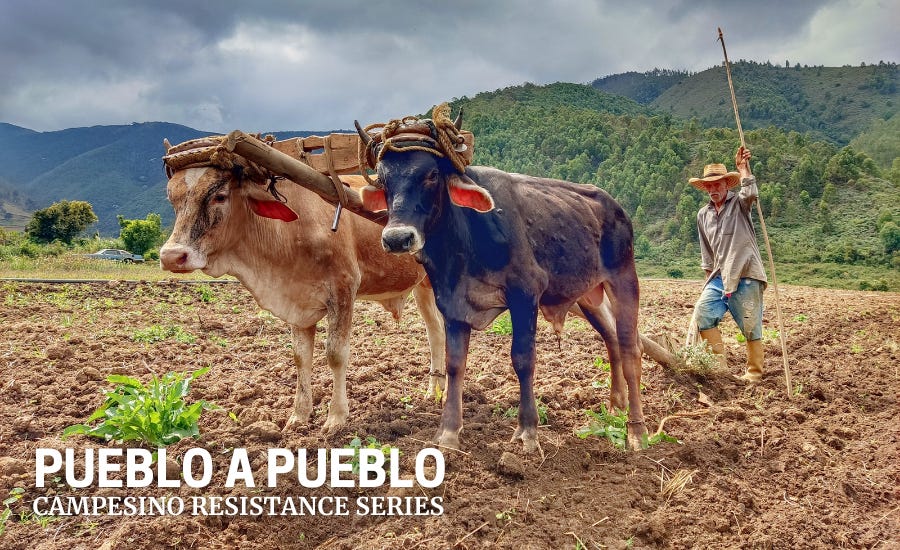Pueblo a Pueblo [People to People] is a grassroots project for organizing the production, distribution, and consumption of food, which connects agricultural producers with urban dwellers. In so doing, the project breaks with the despotism of the capitalist market. In Parts I and II, of this four-part piece in the Communal Resistance Series, Pueblo a Pueblo’s spokespeople talk about their organization’s method and history, and about the impact of the US blockade.
In Part III, Pueblo a Pueblo participants talk to us about the transition to a sovereign, agroecological model.
An excerpt on:
Reciprocity
Gabriel Gil: In Carache [Pueblo a Pueblo’s home base in Trujillo state] – and in general in campesino territories – there are ancestral forms of collective labor that are important to building an agroecological future. Here, mutual aid practices such as “mano vuelta” [giving a hand] and “convite” [invite] are alive and well.
[ In an early posting, we described the features and functionabilities of Pueblo a Pueblo, and where Food Is Not a Commodity, It’s a Human Right
followed by
Circumventing the Blockade: Pueblo a Pueblo Builds Grassroots Food Sovereignty (Part II) ]
The question to ask: what are these practices really about?
The convite is a solidarious practice in which five or more families get together for a task that would be very hard to carry out alone. But most often, the convite does not just bring people together: “yuntas” [teams of oxen] are important to this already-existing communal practice.
We followed with an excerpt on convite and other functionalities on this blog.
Those organizing a convite have certain obligations: they should offer a hearty sancocho [stew] and a cocuy [homemade liquor] macerated with “dítamo real” [a plant with curative properties] to the participants. The day will also usually end with songs and even dancing.
Mano vuelta is like the convite but on a smaller scale. For example, if some work has to be done in my field and I need help, I will often turn to a neighbor or a friend. Later, when he or she needs help, I will go to their field and lend a hand.
Something important about both convite and mano vuelta practices is that they never involve the application of toxic pesticides or fertilizers. If producers want help with that, they will have to pay for the service. In other words, these traditional practices go hand in hand with a worldview that is respectful of human life and nature.
Finally, there’s the cayapa, which is not about care for the land itself, but about the community getting together to fix a road, communal truck, school or public square.
The mano vuelta, the convite, and the cayapa are campesino and Indigenous practices that capitalism has not been able to roll back. They are founded on the principles of solidarity, mutual aid, and community integration. While they come from the past, they help us think about a better future.
Reciprocity and solidarity are in the DNA of campesino life and, as Pueblo a Pueblo works to promote an agroecological transition, these practices become all the more important.
Gratitude to
Pueblo a Pueblo [People to People] grassroots project
for reposting this report to a wider audience.




